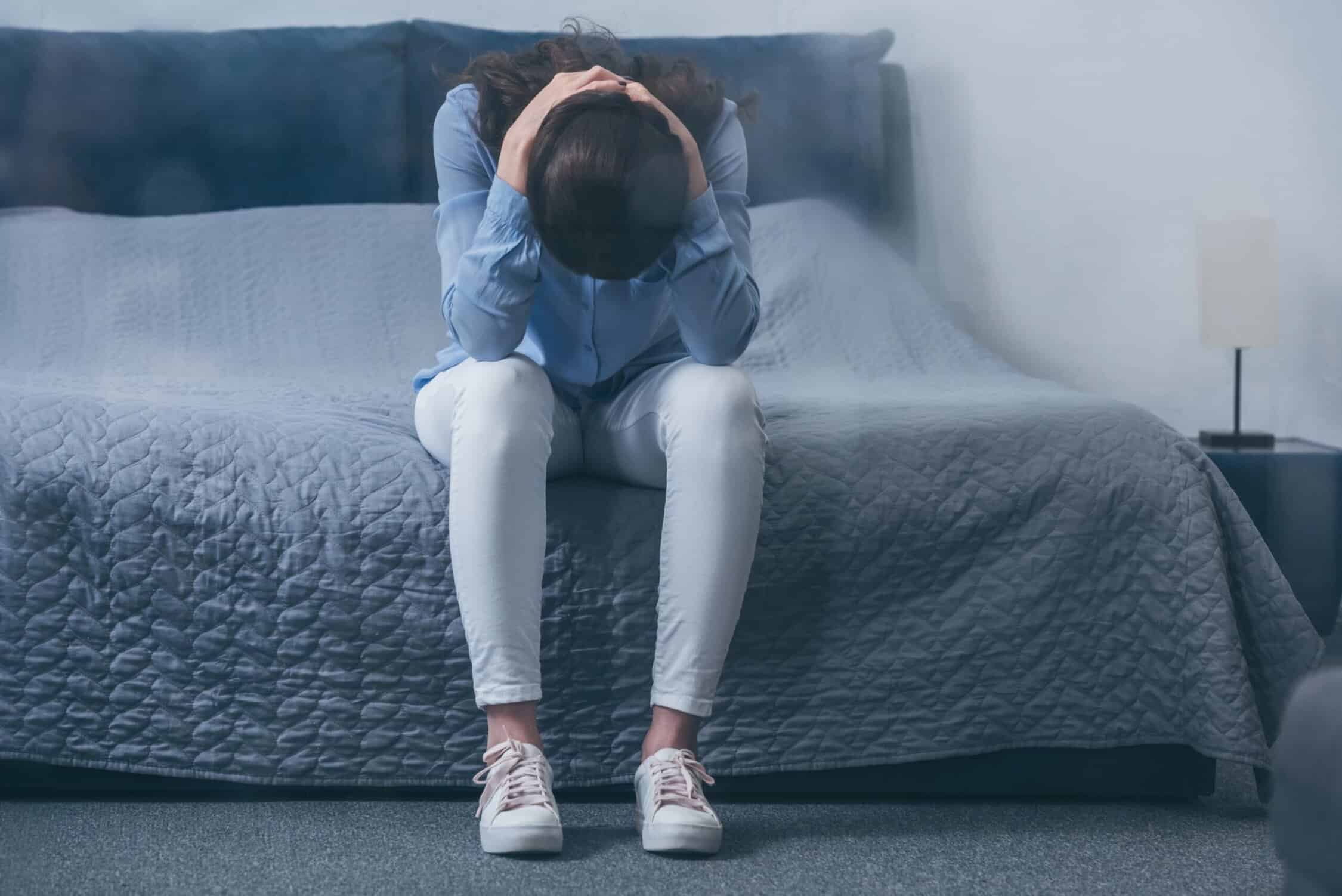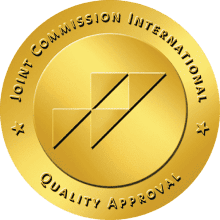Alcohol and Anxiety: Understanding the Connection Between Two

At Hillside Detox, we help individuals break that cycle with evidence-based treatment for both substance use and mental health challenges. Our team understands how alcohol can mask anxiety in the short term—but make it worse in the long run. If you’re feeling stuck between drinking and distress, there’s a better way forward.
How Alcohol Affects Anxiety Symptoms
Although alcohol is widely considered a central nervous system depressant, it can initially make individuals feel more sociable, relaxed, and even euphoric. However, these short-lived effects can be deceptive. After the immediate chemical changes wear off, alcohol often causes anxiety symptoms to spike—especially as the brain tries to rebalance itself. This rebound effect may leave a person feeling more anxious, irritable, or emotionally unstable than before.
Studies have shown that alcohol withdrawal can also trigger heightened anxiety levels, even in those who don’t have a diagnosed anxiety disorder. People who drink frequently may begin using alcohol as a coping mechanism, creating a harmful cycle that leads to alcohol dependence and worsened mental health.

Alcohol Use Disorders and Anxiety Disorders: A Complicated Cycle
Alcohol and anxiety are often deeply intertwined, and the overlap between alcohol use disorders and anxiety disorders affects a large portion of the general population. Many people drink alcohol to feel relaxed, manage social fears, or ease tension—but over time, this pattern can worsen long-term anxiety, trigger depressive disorders, and lead to more serious alcohol problems.
At Hillside Detox, we understand how easy it is to fall into this cycle—and how hard it can be to break free without help. That’s why our personalized detox and dual diagnosis programs are built to address both mental health and substance use together, giving patients a stronger path to lasting recovery.
Generalized Anxiety Disorder and Alcohol: A Risky Mix
For individuals with generalized anxiety disorder (GAD), consuming alcohol might seem like a quick fix for trouble concentrating, racing thoughts, or sleep disruption. But what starts as a way to feel relaxed can backfire—heightening anxiety, increasing irritability, and reducing the brain’s ability to regulate stress naturally.
As alcohol affects the central nervous system, it can intensify the physical symptoms of anxiety over time. People drink more to manage these symptoms, but the body builds tolerance, and the underlying anxiety remains untreated—sometimes even worse. Over time, this pattern can lead to a mental health crisis that feels impossible to manage without support.
Depression, Alcohol, and Emotional Escape
It’s not just anxiety—depressive disorders are also closely linked with alcohol consumption. Depression can bring on fatigue, emotional numbness, low motivation, and feelings of hopelessness. For many, alcohol offers temporary escape. But that escape is short-lived.
Drinking alcohol while struggling with depression often leads to worsened mood, disrupted sleep cycles, and increased emotional instability. And since alcohol is a depressant, it can further impair the brain’s ability to manage serotonin and dopamine levels—making recovery even harder. Without treating both conditions, patients often relapse or experience incomplete healing.
Integrated Care and the Path to Healing
Studies continue to highlight the need for dual diagnosis care, where both mental health and substance use are treated at the same time. Ignoring one while addressing the other only increases the risk of relapse, complications, and delayed healing.
At Hillside Detox, our programs are tailored with both inclusion criteria and exclusion criteria designed to create safe, focused environments for healing. We work with patients to uncover the root causes of alcohol problems, identify co-occurring disorders, and build custom treatment plans that address every layer of their experience—whether they’re battling anxiety, depression, trauma, or the impact of other substances.

Treatment Options for Alcohol and Anxiety
At Hillside Detox, we understand how alcohol use and anxiety disorders can reinforce one another—fueling a cycle that’s difficult to escape without help. That’s why we offer integrated care that addresses both the mental health symptoms and the physical effects of alcohol consumption, helping individuals reclaim stability, confidence, and peace of mind.
Below are key components of our treatment model—designed to support long-term healing for those navigating anxiety and alcohol use:
Medical Detox to Manage Alcohol Withdrawal Safely
For those who drink alcohol regularly, the negative effects of withdrawal can include everything from insomnia and panic attacks to tremors, increased anxiety, and even seizures. Hillside provides medically monitored detox in a safe, supportive setting—giving the brain time to stabilize and the body space to recover from the strain of alcohol use.
Detox is often the first—and most critical—step for anyone dealing with substance abuse and mental disorders. It lays the foundation for clear thinking and effective treatment.
Comprehensive Mental Health Evaluations
Alcohol can mask symptoms of generalized anxiety disorder, depression, or other underlying mental disorders. That’s why we begin treatment with a full mental health evaluation to identify co-occurring issues that might otherwise go undiagnosed.
This is especially important for older women and others in the general population who may have learned to cope silently through alcohol. Our team considers both inclusion criteria and exclusion criteria when forming accurate, personalized diagnoses to better treat anxiety and address its root causes.
Evidence-Based Therapy, Including CBT and Trauma-Informed Care
Therapies like cognitive behavioral therapy (CBT) are proven to help rewire the way the brain responds to anxiety, stress, and cravings. At Hillside, we incorporate CBT alongside trauma-informed care and mindfulness practices to help patients explore why they drink, how alcohol affects their emotional regulation, and what healthier alternatives are available.
By breaking the link between anxiety and alcohol, therapy empowers individuals to build habits that support lasting recovery.
Tools for Long-Term Coping and Emotional Regulation
Stopping drinking is only part of the solution. Our programs focus on long-term skill-building so that patients can navigate stress, relationships, and transitions without relying on alcohol. This includes:
- Mindfulness and relaxation training
- Sleep hygiene and daily routine planning
- Goal-setting and values clarification
- Identifying anxiety triggers and creating action plans
As future research shows, sustainable recovery depends on teaching the body and mind new ways to respond to stress—not just removing the substance.
Peer and Professional Support for Everyday Challenges
Learning to socialize, express emotions, and manage daily life without alcohol is a major part of recovery. Hillside offers a strong support network of peers, clinicians, and aftercare specialists who guide patients through real-world transitions. This is where healing becomes sustainable.
Whether you’re dealing with anxiety and depression, frequent alcohol use, or unresolved trauma, support is essential. As noted in journals like the American Journal of Psychiatry, there are still few definitive conclusions about which disorder comes first—but there’s no question that treating both leads to better outcomes.
How Hillside Detox Treats Co-Occurring Alcohol Consumption and Mental Health Conditions like Anxiety and Depression
At Hillside Detox, we understand that alcohol use disorders rarely exist in isolation. For many of our patients, alcohol consumption is closely tied to unresolved anxiety, depression, trauma, or other psychiatric disorders. That’s why we provide comprehensive, evidence-based care designed to treat the whole person—not just the symptoms of withdrawal.
Our medical detox program begins with a thorough clinical assessment to understand each individual’s physical health, psychiatric history, and drinking habits, including patterns of moderate drinking, heavy drinking, or weekly drinking. We use research-informed tools like the Beck Anxiety Inventory to help identify conditions such as generalized anxiety disorder or depressive symptoms that may have gone undiagnosed.
From there, we offer:
- 24/7 medical monitoring in a safe, supportive environment
- Medication-assisted treatment (MAT), when appropriate, to reduce withdrawal complications and lower anxiety during detox
- Access to licensed clinicians trained in dual diagnosis care
- Emotional support and case management to prepare patients for ongoing treatment
- Coordination with outpatient or residential programs for continued care
We recognize that anxiety and alcohol, or depression and alcohol, often fuel one another—and unless both are treated, long-term recovery is difficult to achieve. That’s why our treatment model is rooted in clinical and experimental research, following best practices recommended by the National Institute on Alcohol Abuse and Alcoholism and leading mental health organizations.

Healing Anxiety and Alcohol Use
Breaking the cycle of alcohol and anxiety takes more than willpower—it takes the right support, the right tools, and a treatment plan that truly understands what you’re going through. At Hillside Detox, we combine medical expertise with whole-person care to help patients heal from the inside out. Whether you’re just starting to question your relationship with alcohol or you’ve been struggling for years, there’s no shame in seeking help—and every reason to take that first step.
If you’re ready to learn more about how Hillside can support your recovery from alcohol use and co-occurring anxiety disorders, we’re here to talk. Reach out to our team today to speak with a compassionate specialist, explore your options, and start building a future rooted in clarity, calm, and confidence. You don’t have to navigate this alone, and at Hillside, you never will.
Sources
Smith, J. P., and S. W. Book. “Comorbidity of Generalized Anxiety Disorder and Alcohol Use Disorders among Individuals Seeking Outpatient Substance Abuse Treatment.” Addictive Behaviors, vol. 35, no. 1, Jan. 2010, pp. 42–45. PubMed Central, https://www.ncbi.nlm.nih.gov/pmc/articles/PMC2763929/
Worner, R., et al. “Introduction to Alcohol Withdrawal.” Journal of Nutrition & Therapeutics, vol. 22, no. 1, 1998, pp. 5–12. PubMed Central, https://www.ncbi.nlm.nih.gov/pmc/articles/PMC6761824/.
“Alcohol Use Disorder and Depressive Disorders.” Alcohol Research: Current Reviews, vol. 40, no. 1, 2019. PubMed Central, https://www.ncbi.nlm.nih.gov/pmc/articles/PMC6799954/.
“Alcohol Use and Anxiety: Diagnostic and Management Issues.” American Journal of Psychiatry, vol. 164, no. 2, Feb. 2007, pp. 217–221. https://doi.org/10.1176/ajp.2007.164.2.217.
“State-of-the-Art Behavioral and Pharmacological Treatments for Alcohol Use Disorder.” American Journal of Drug and Alcohol Abuse, vol. 45, no. 2, 2018, pp. 124–140. PubMed Central, https://www.ncbi.nlm.nih.gov/pmc/articles/PMC6430676/.

Medical Reviewer
Verify Your Insurance
"*" indicates required fields
World Class Amenities
- Cell phones allowed
- Gym and fitness center
- Onsite spa services
- Entertainment theater
- Recreation room
- Support animal friendly
Ready to Get Help?
We have helped countless individuals empower themselves to recover and get the substance use and mental health treatment they need. Know that you’re not alone in this, we are here to help.

We Are Here to Help
Contact us through the confidential form below for assistance on how to find Alcohol Detox, Alcohol Rehab, and a Drug Addiction Treatment Center in Massachusetts.
"*" indicates required fields
